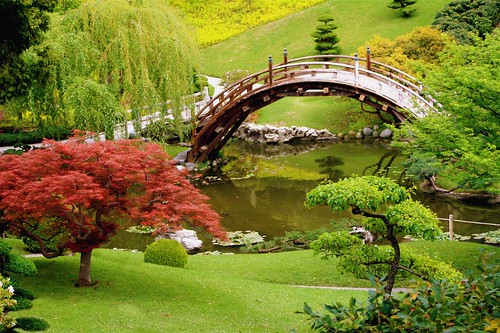You must have both patience and skill to grow an organic garden. The goal of this hobby is to grow pesticide-free and healthy food that you can enjoy. You might think this sounds complicated or expensive. Read the tips below to see what you need to begin growing like a pro.
When powdery mildew appears on your plants, you should not rush out to purchase a costly chemical treatment. Mix a solution of baking soda, water, and a tiny bit of dishwashing liquid. Spray this mix on your plants every week and the mildew should go away. Baking soda is not harmful to your plants and will take care of the issue as well as any other treatment.
To achieve the best growing results, plants need sufficient carbon dioxide. With a high level of CO2 plants will grow much better. The best way to expose your plants to a high level of carbon dioxide is by growing them in a greenhouse. It’s very important to keep the CO2 levels high so your plants have the best possible growing conditions.
Make sure you remove the weeds from your garden! Weeds and gardens do not mix; they will destroy your garden. White vinegar has been known to kill weeds quickly. White vinegar kills weeds. Spray white vinegar onto those troubling weeds.
Coffee Grounds
If you discover that your soil is very alkaline, take used coffee grounds and mix them thoroughly with your soil. Using coffee grounds is a less expensive way to make your soil more acidic than trying to replace your topsoil. This can help your veggies and greens look more vibrant and taste better!
Before you start planting your garden, plan it out. It will be a while before things start to sprout and visually remind you of what was planted where, so a written record can be helpful. With a plan, you will also be less likely to lose track of small groups or individual plants within a large and ambitious garden.
Keep your fragile shrubs protected from the winter weather. When these tender shrubs are kept in pots, cold weather can be very damaging. First tie together the tops; then take a sheet or blanket and loosely shroud the wigwam. Covering your foliage in plastic will let the air in – and may lead to decay.
To save your knees from the wear and tear of gardening, invest in some knee pads if your garden includes a lot of low-growth plants. Your knees will take a beating if you spend a great deal of time on the ground while tending your garden. Pick up a good pair of horticulture knee pads to help cushion your knees.
If you are looking for an all-natural, organic way to weed your garden, consider “boiling off” the weeds. The safest herbicide that you can probably find is a cup of boiling water. Pour hot water right on the weeds, but do not get any on your plants. The roots of the weeds are damaged by the boiling water which, in turn, inhibits further growth.
Plant items with fall color. That need not be the case though! The autumn season can be one of the best growing seasons and is certainly the most colorful. Many trees display a range of the vivid colors of fall, from bright yellow to rich crimson, including maple, beech, and dogwood. Shrubs such as barberry, cotoneaster and hydrangea all have gorgeous fall foliage.
Organic horticulture can be described as a healthy hobby that incorporates the beauty of nature, lots of hard work along with lots of patience. This hobby makes good use of your land to produce tasty vegetables and fruits. But, if you are ready to dedicate yourself and stick to the advice in this piece, you are sure to be a successful organic gardener.
